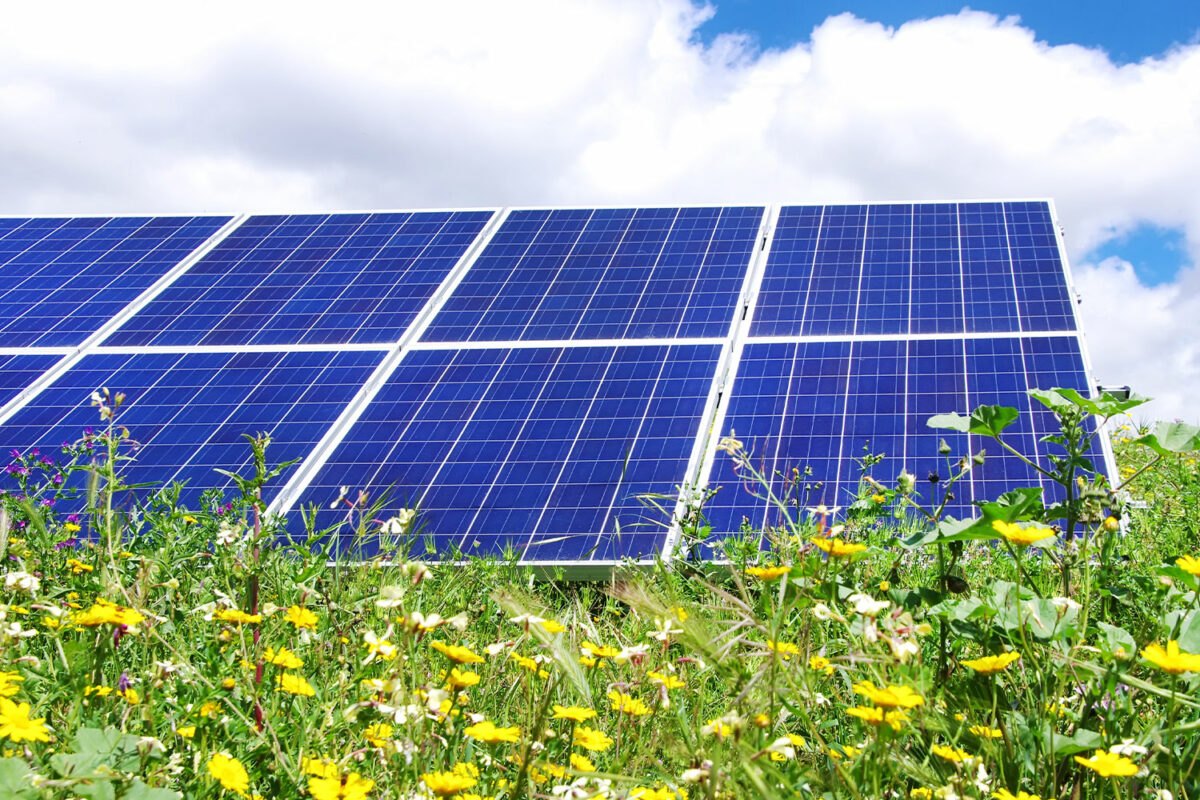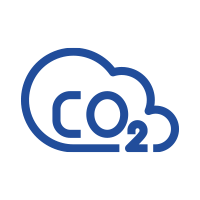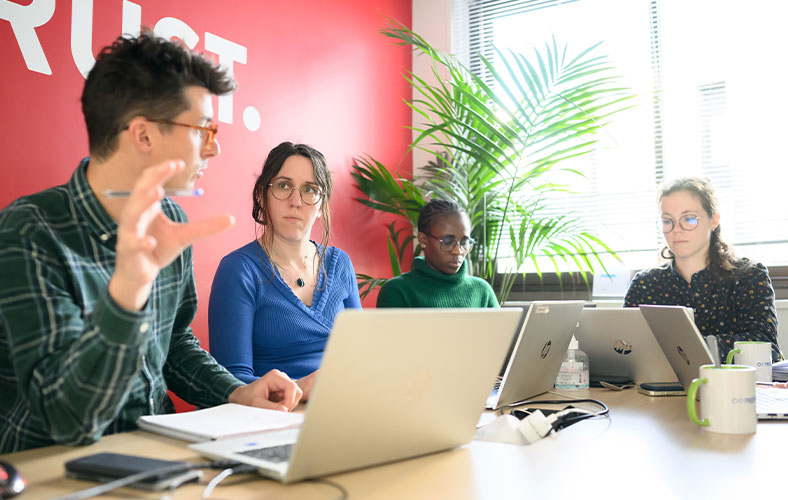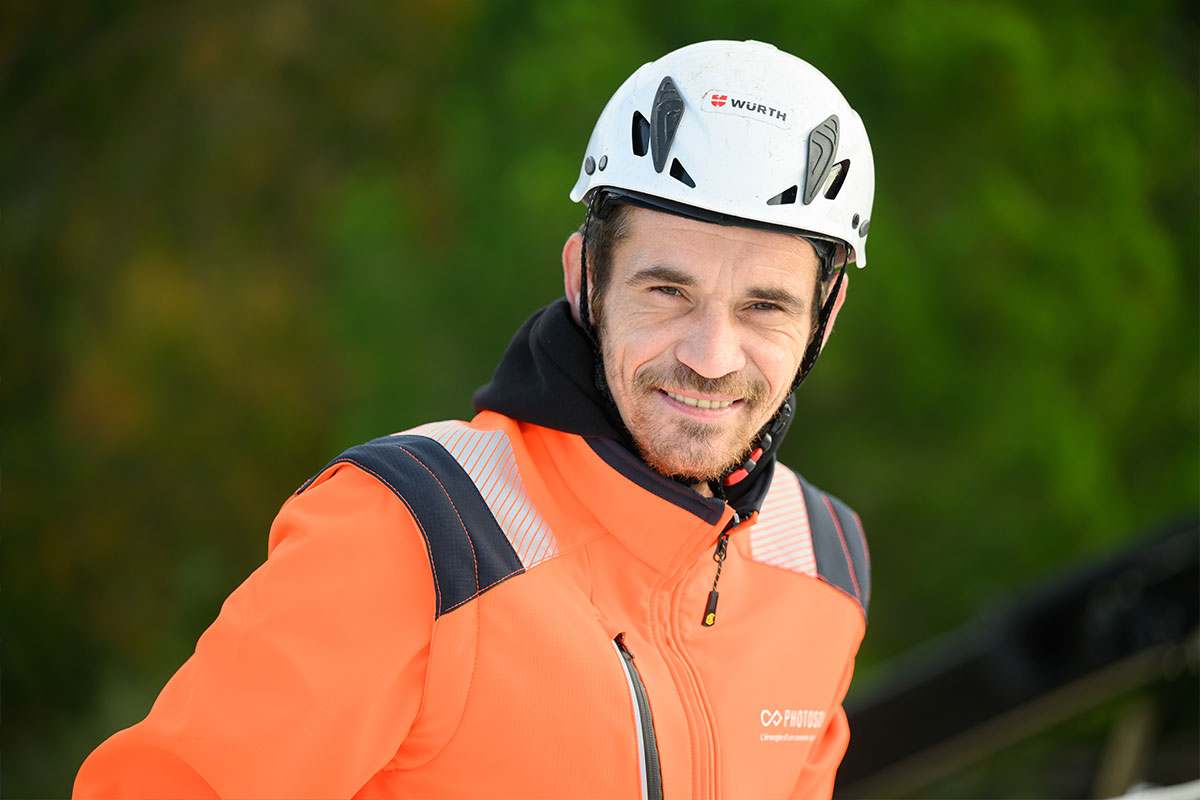Sarrazac photovoltaic park (46)
With a capacity of 11.5 MWp, the installation is designed to provide electricity to around...
A three-pronged CSR policy
By placing energy transition and sustainable development at the heart of its activities since 2008, Photosol has positioned itself as an exemplary player in this field. The company is taking a new step forward in 2023 by defining its CSR policy and roadmap, which sets out its commitments in concrete objectives around three key areas.
As a subsidiary of the Rubis Group, which has been a member of the United Nations Global Compact since 2021, Photosol is implementing its CSR policy to help achieve the global sustainable development goals (SDGs).
We are committed to deploying low-carbon energy solutions by selecting state-of-the-art equipment designed to maximize efficiency and minimize losses. Our solar farms are developed according to the highest industry standards, with a strong focus on sustainability and seamless integration into their surroundings. We actively monitor and optimize the productivity of our installations using advanced tracking and analytics tools, ensuring optimal performance while controlling our carbon footprint across the entire project lifecycle.




We are committed to ensuring a safe working environment for our teams, with a zero-accident objective. We place strong emphasis on the mental and physical well-being of our employees by fostering conditions that support their health and fulfillment. We promote a collaborative culture and provide a stimulating work environment to retain and nurture talent. Every employee is empowered to reach their full potential through a competitive compensation policy and an inclusive culture where equal opportunity and diversity are embedded in our everyday practices.




We place ethics, transparency, and social responsibility at the heart of our operations to help build a more responsible and sustainable society.
We apply CSR criteria when selecting our suppliers, considering not only product quality and competitiveness but also the social and environmental conditions under which they are produced. We require SA8000-compliant audits to ensure that working conditions respect human rights—prohibiting forced labor, ensuring protection from discrimination, and upholding worker safety. In addition, we are committed to reducing our environmental footprint by requiring ISO 14001 certification from all module and structure suppliers prior to contract agreement.
We ensure that our operations adhere to the highest ethical standards. To that end, our contracts explicitly prohibit forced labor and include specific clauses to safeguard human rights. In the event of non-compliance, we reserve the right to terminate the contract and request corrective action. If any human rights violations are identified, we reject the affected products and require the supplier to submit and implement a corrective action plan.
We support local economic development by prioritizing local procurement and promoting local employment. We are also committed to engaging local communities in participatory projects, generating positive and lasting impacts, including tax benefits for the regions involved.




These principles are outlined in the Rubis Code of Ethics, which reflects our commitments to all stakeholders in support of sustainable development.
The Code of Ethics is complemented by the Rubis Anti-Corruption Guide. This guide serves as the foundation for our internal rules and procedures to prevent corruption. It helps clarify sensitive or unusual situations and offers guidance on how to recognize and reject unacceptable practices.
Our employees, as well as our business partners and their teams, can report any misconduct, irregularities, or violations of our Code of Ethics or Anti-Corruption Guide without fear of retaliation. To facilitate this, we have implemented a straightforward and confidential whistleblowing system.
With a capacity of 11.5 MWp, the installation is designed to provide electricity to around...
Photosol has developed an agrivoltaic installation at Yzeure in the Allier region in partnership with...
This installation involves the production of local photovoltaic energy, as close as possible to where...
We are developing the coverage of the parking lots with photovoltaic canopies and the construction...
With an installed capacity of 24 MWp and an annual production of 27 GWh, the...
This project has an installed capacity of 20 MWp and produces 22.5 GWh of electricity...

As a key player in the energy transition, we are continually diversifying our expertise to meet this major challenge, and are always on the lookout for new talent to strengthen our team.